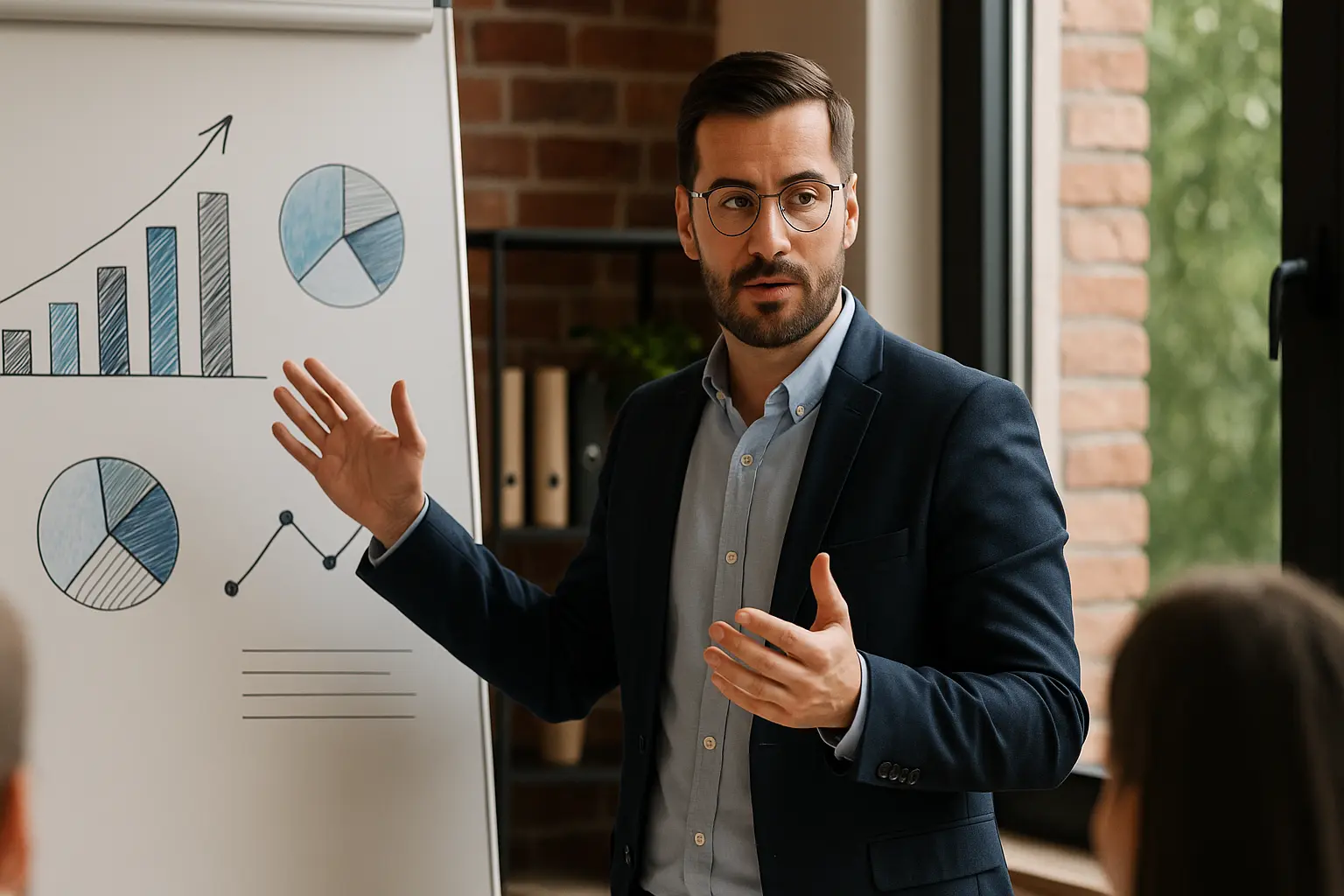(Those familiar with KESTIO will recognize our values in these actions: #2 Act as an agent of change, #5 Promote the transmission of knowledge, and #7 Be passionate and proud of our consulting profession!). To introduce the activities of this international organization, we gave the floor to Maylis Portmann, Fellowship Manager at Ashoka.
-
Can you introduce Ashoka in a few words?
Ashoka is the world's leading network of social entrepreneurs.
Founded 30 years ago by American Bill Drayton (formerly with McKinsey, having directed the American environmental agency, editor's note), the association is now present in 80 countries and supports 3,000 social entrepreneurs in carrying out their projects. These are innovative projects with a real social impact.
Currently, for example, we are supporting projects as diverse as:
-
- The development of digital tools and educational content to help autistic children develop their potential and offering appropriate support to those involved in their educational support (parents, teachers, specialized educators, etc.): the LearnEnjoy project, which democratizes access to the best educational strategies, so that all children with special needs have the right to them without discrimination, led by Gaele Regnault.
- The fight against cultural isolation and lack of information in difficult or extreme situations (refugee camps, developing countries) through the "IdeasBox" concept (Media library in a "Kit" tent: multimedia tools and library, a 100 m2 space assembled in flight cases holding on 2 pallets, designed by Philippe Stark). Project led by Jeremy Lachal and the association Bibliothèques sans Frontières (co-founded by historian Patrick Weil).
- The implementation of adapted physical activity programs as a genuine therapeutic tool for prevention in the service of Sustainable Health among vulnerable populations: elderly or disabled people, professions with strenuous physical demands, to promote their continued good health, autonomy and the prevention of chronic pathologies. Siel Bleu project led by Jean Michel Ricard.
Our mission: to identify and support innovative social entrepreneurs, promote meetings and collaboration between these social entrepreneurs, public institutions and the business world, and ultimately, help the next generations of change-makers emerge through an « education » component.
For the mobile application project to track and manage water consumption, for example, one element of our support program was to connect project leaders with KESTIO consultants to help them approach and convince their potential prescribers (in this specific case, large companies in the insurance sector, in particular) to promote the sales development of their product.
-
What is a social entrepreneur?
When we talk about a social entrepreneur, we understand the word 'entrepreneur' in the broadest sense, that is, regardless of the legal status of the company. We support projects with associative or foundation status as well as companies in the strict sense.
A social entrepreneur, as we understand it, is above all an innovator, whose idea is strong enough to change the game in their field. What matters most is the interest of the project, its innovative nature and its perceived impact, that is to say, its potential capacity to solve a societal problem on a large scale.
In practice, the sectors of activity concerned are most often education, health, human rights, sustainable development, inclusion and the fight against exclusion, etc.
Ashoka's core mission is to identify these potentials, select them, and support them to truly accelerate their development and ensure the conditions for their widespread dissemination.
-
What is your role within Ashoka?
I am in charge of managing the support program for Fellows (that's the name we give to the social entrepreneurs we support) for France, Belgium, and Switzerland.
I organize the actions implemented with the 'Pro-bono1' partners of which you are a part, that is to say the various players (public authorities and private companies) ready to commit to giving their time and sharing their expertise in a co-construction approach with social entrepreneurs and members of civil society to advance their projects.
In concrete terms, this translates, for example, into the organization of thematic meeting days or regular workshops during which fellows will benefit from expert input on various subjects (legal, commercial, HR, communication, know-how, etc.) and simulations allowing them to co-construct with the partners present.
During a recent weekend in Lyon, for example, the fellows worked with KESTIO on best practices for approaching a partner or client and presenting their project or solution. They also participated in workshops led by SIMPLON on design thinking, and a Lego Scrum session for a fun, team-based learning experience on project management and meeting client expectations.
-
How do you measure the impact of your actions with fellows in the field?
To measure the impact of our actions, we evaluate the results of the activity of the supported social entrepreneurs and their evolution over 5 years, then 10 years (impact studies Measuring Effectiveness).
This allows us to know, for example, that 94% of social entrepreneurs selected by Ashoka continue to develop their project 5 years after joining the network: this is a sign of their viability and the relevance of the development conditions that were implemented at the start.
Such a 'success rate' is no accident: 'fellow' status is obtained after a demanding selection process that lasts for 6 to 8 months! But it is then 'acquired for life'.
Two other figures that make us particularly happy and proud: 91% of these projects are replicated, meaning they are duplicated (in other countries, for example), and 54% of them have an impact on the policy implemented in their country! This is proof that they provide an effective response to real, shared societal challenges.
Very concretely, when we support, for example, the C&A Foundation, which researches and identifies players in the textile value chain who implement environmentally and socially responsible production conditions, we actively contribute to advancing issues related to health, respect for human rights, social and economic development, and respect for the environment!
From a more qualitative perspective, the impact study conducted among fellows in France, Switzerland, and Belgium by MFR Consulting reveals what Ashoka represents for them: an 'accelerator' to maximize the potential of the activity and its creator; a community of peers and expert resources; and finally, a place of trust, support, and experience that allows them to avoid pitfalls that are sometimes fatal to this type of project.
1 Pro Bono: abbreviation of the Latin expression «pro bono publico », meaning « for the public good ». Pro bono refers to the commitment of volunteers who give meaning to their profession by getting involved in initiatives of general interest free of charge.
Want to learn more about the organization's actions and projects : Take a look at Ashoka's website!
Want to go further and bring your values to life? Support Ashoka or Become a Pro-bono partner
Do you know any innovative social project leaders? Propose a Fellow





